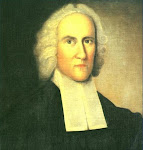Reading the biblical Book of Judges can sometimes be more than a little bit discouraging. The Lord had faithfully brought his people the Jews into the Promised Land, just as he said he would do. However, consistently during the approximately 325 years the judges led the people of Israel, the Jews turned away from the Lord again and again and again. Though they had witnessed incredible miracles Yahweh had performed on their behalves, the people of God turned away from the Lord to the worship of the false gods worshiped by the people groups around them. The refrain that closes the Book of Judges sums up the seriously tragic spiritual declension of the day: “Everyone did what was right in his own eyes” (Judges 21:25; cf. Judges 17:6; 18:1; and 19:1).
The last five chapters of the book of Judges show especially clearly an Israel that has fallen into spiritual and moral degradation of the basest kinds. The land is full of violence, disrespect for women, sexual immorality, and abuse of neighbor. We wonder whether there was any Israelite at all living in the day of the judges who was full of the grace of God and of noble character. The we turn to the pages of the short Book of Ruth, which introduce us to a Jewish man by the name of Boaz. This man does prove to be full of the grace of God, manifested in his exercise of steadfast love toward his workers and toward his extended family. Boaz’s love for the Lord and utter integrity and faithfulness toward his workers and family shine through in this book, and they shine especially righty when we see that Boaz lived during the otherwise degraded time of the judges (Ruth 1:1).
There is even more to Boaz, however, than his godly character. The Book of Ruth stresses that Boaz is the kinsman-redeemer of Ruth, the woman of Moab who has been converted to the worship of the Lord (Ruth 3-4). As Ruth’s kinsman-redeemer, Boaz purchases Ruth, by payment of a ransom price, out of difficult circumstances into a situation of blessing. In this respect Boaz foreshadows his direct descendant (Matthew 1:3-6) Jesus Christ who would be the great Kinsman-Redeemer. Jesus became our kinsman by becoming a real human being—God the Son became one of us! (John 1:14). Christ redeemed sinners by dying to pay the penalty for their sins on the cross of Calvary (Romans 3:21-26), so that whoever trusts in Jesus alone for salvation has eternal life (John 3:16). Jesus did not redeem his people’s souls through payment of money, as Boaz redeemed Ruth, but he paid our ransom price to the father with his own infinitely precious blood (Mark 10:45; 1 Peter 1:19).
The other morning after I had re-read the story of Boaz from the Book of Ruth, I prayed that God in his grace would make me a man of noble character—of steadfast love and faithfulness—like Boaz. However, I also pray with thanksgiving that Boaz points to an infinitely greater Kinsman-Redeemer, Jesus Christ, who shed his blood on the cross to obtain an eternal redemption for the people of God. “Thanks be to God for his inexpressible gift!” (2 Corinthians 9:15).

No comments:
Post a Comment